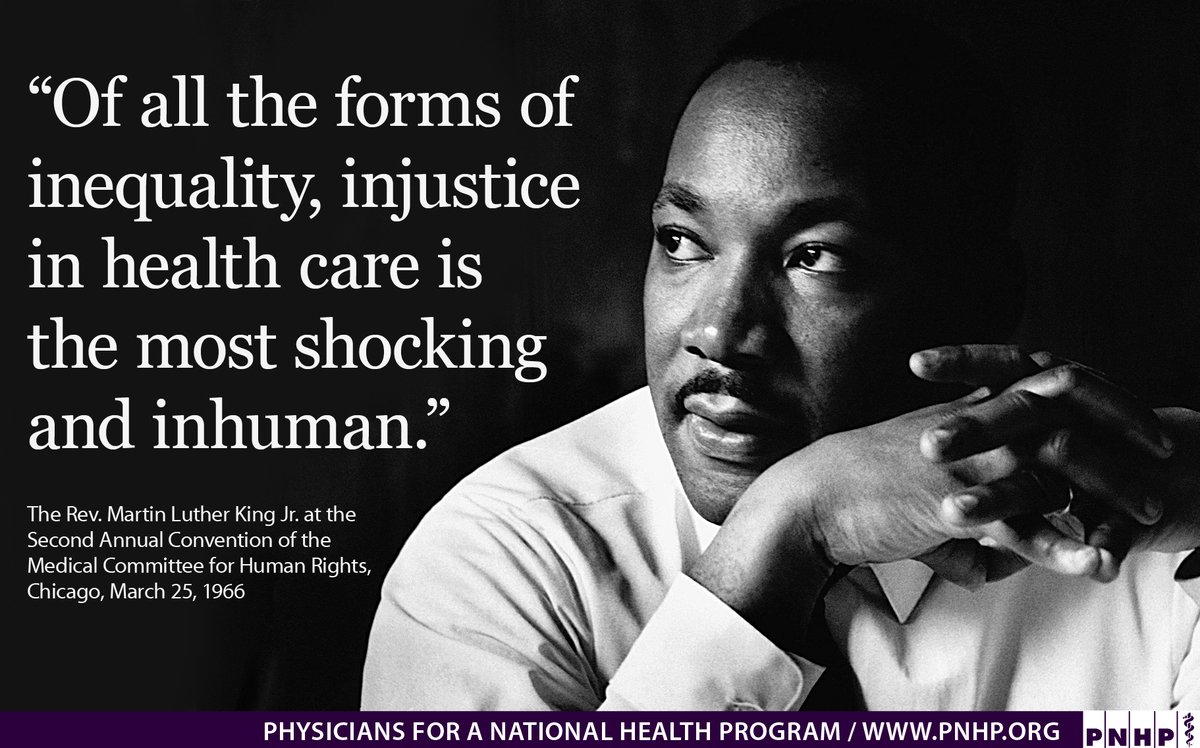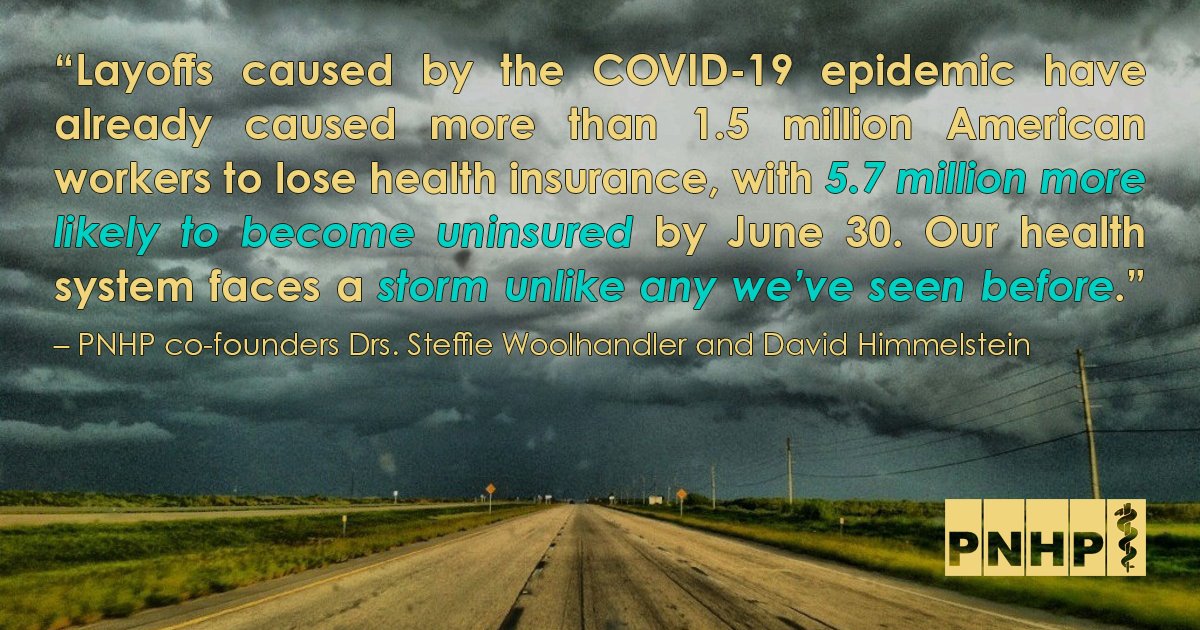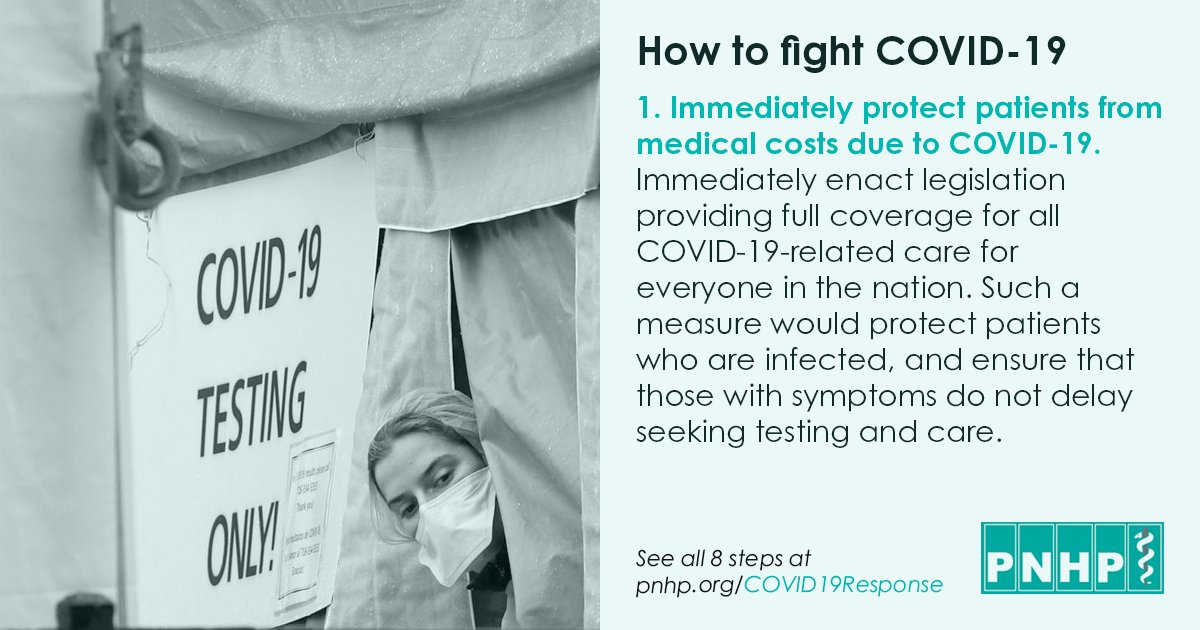
We hear this question over, and over, and over again. Often from people who know better, but who want to sow doubt about our ability to finance #SinglePayer #MedicareForAll. So let's get into it.
Full toolkit here: pnhp.org/PayingForIt
Thread below👇
Full toolkit here: pnhp.org/PayingForIt
Thread below👇

For starters, the U.S. spends more on health care than any other nation in the world, by far. A whopping $3.8 TRILLION in 2019, which is projected to go up to $6.2 TRILLION by 2028. bit.ly/2LDO74O via @Health_Affairs
This spending takes a HUGE bite out of family budgets. In 2020, the cost of health care for a hypothetical U.S. family of four covered by an average employer-sponsored PPO plan was $28,653, according to @millimanhealth. bit.ly/2MRCPuj
Not to mention the taxes we all pay to fund Medicare, Medicaid, the VA, health coverage for public employees, tax breaks for employer-sponsored plans, etc. Government’s share of overall health spending was 64.3% in 2013, and will rise to 67.1% in 2024. bit.ly/2N6lfm2
And then there's the fact that *every other industrialized nation* manages to fund a national health program for considerably less $$$ per capita. bit.ly/3tGCVW2 via @KFF 

So we're already spending *more than enough* on health care to provide comprehensive coverage to every U.S. resident. We're just not getting our money's worth.
Fortunately, there is *ample evidence* that it doesn't have to be this way. Most major studies over the decades (including some with major shortcomings) concluded that #SinglePayer #MedicareForAll would *lower* national health spending. bit.ly/3jwB1me via @PLOSMedicine 

We've highlighted a dozen recent #SinglePayer analyses at pnhp.org/PayingForIt, where you can view detailed infographics, read study abstracts and PNHP commentary, and access links to the studies themselves. We've also archived dozens of pre-ACA studies.
So how should we finance #SinglePayer #MedicareForAll? By combining existing sources of federal financing with *progressive* taxes that ask the wealthiest individuals and corporations to pay more (which they can easily afford).
Progressive taxation is a crucial principle, and stands in stark contrast to our regressive model of charging the same premiums to everybody in a group plan, regardless of their ability to pay. (It would also make a dent in wealth inequality, which harms population health.)
Large employers would contribute their fair share to finance #MedicareForAll, just as they are required to provide health coverage today. The billions they pay in insurance premiums could easily be paid in payroll taxes, for example, without affecting workers' paychecks.
Employers would no longer need to devote countless hours to administering health plans, and would be spared the annual fretting about unpredictable premium hikes. Workers would no longer suffer “job lock,” and would benefit from increased leverage at the bargaining table.
States, cities, school districts, and other taxing bodies would no longer need to provide health benefits to their employees, which would allow them to invest in other priorities and rein in the continuous rise in local taxes and fees.
#SinglePayer would also eliminate cost-sharing, which imposes a cruel and regressive penalty on chronically ill and disabled individuals, and anybody else who needs expensive medical care (a relatively small % of the population that endures a crushing financial burden).
Bottom line: #MedicareForAll is not just *an* affordable option, it is the *only* affordable option.
How are we going to pay for it? By cutting out the middlemen. How are we going to do that? By building a movement that not even Congress can ignore.
pnhp.org/PayingForIt
How are we going to pay for it? By cutting out the middlemen. How are we going to do that? By building a movement that not even Congress can ignore.
pnhp.org/PayingForIt
• • •
Missing some Tweet in this thread? You can try to
force a refresh







